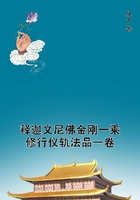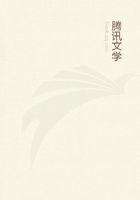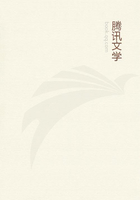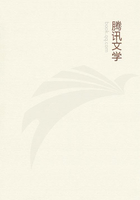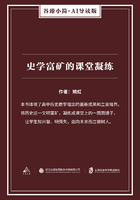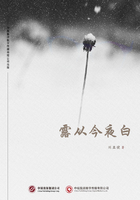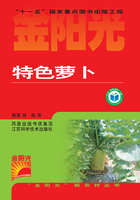The Death of OEnone was published in 1892, with the dedication to the Master of Balliol -"Read a Grecian tale retold Which, cast in later Grecian mould, Quintus Calaber Somewhat lazily handled of old."Quintus Calaber, more usually called Quintus Smyrnaeus, is a writer of perhaps the fourth century of our era. About him nothing, or next to nothing, is known. He told, in so late an age, the conclusion of the Tale of Troy, and (in the writer's opinion) has been unduly neglected and disdained. His manner, I venture to think, is more Homeric than that of the more famous and doubtless greater Alexandrian poet of the Argonautic cycle, Apollonius Rhodius, his senior by five centuries. His materials were probably the ancient and lost poems of the Epic Cycle, and the story of the death of OEnone may be from the Little Iliad of Lesches. Possibly parts of his work may be textually derived from the Cyclics, but the topic is very obscure. In Quintus, Paris, after encountering evil omens on his way, makes a long speech, imploring the pardon of the deserted OEnone. She replies, not with the Tennysonian brevity; she sends him back to the helpless arms of her rival, Helen. Paris dies on the hills; never did Helen see him returning. The wood-nymphs bewail Paris, and a herdsman brings the bitter news to Helen, who chants her lament. But remorse falls on OEnone. She does not go "Slowly down By the long torrent's ever-deepened roar,"but rushes "swift as the wind to seek and spring upon the pyre of her lord." Fate and Aphrodite drive her headlong, and in heaven Selene, remembering Endymion, bewails the lot of her sister in sorrow.
OEnone reaches the funeral flame, and without a word or a cry leaps into her husband's arms, the wild Nymphs wondering. The lovers are mingled in one heap of ashes, and these are bestowed in one vessel of gold and buried in a howe. This is the story which the poet rehandled in his old age, completing the work of his happy youth when he walked with Hallam in the Pyrenean hills, that were to him as Ida.
The romance of OEnone and her death condone, as even Homer was apt to condone, the sins of beautiful Paris, whom the nymphs lament, despite the evil that he has wrought. The silence of the veiled OEnone, as she springs into her lover's last embrace, is perhaps more affecting and more natural than Tennyson's "She lifted up a voice Of shrill command, 'Who burns upon the pyre?'"The St Telemachus has the old splendour and vigour of verse, and, though written so late in life, is worthy of the poet's prime:-"Eve after eve that haggard anchorite Would haunt the desolated fane, and there Gaze at the ruin, often mutter low 'Vicisti Galilaee'; louder again, Spurning a shatter'd fragment of the God, 'Vicisti Galilaee!' but--when now Bathed in that lurid crimson--ask'd 'Is earth On fire to the West? or is the Demon-god Wroth at his fall?' and heard an answer 'Wake Thou deedless dreamer, lazying out a life Of self-suppression, not of selfless love.'
And once a flight of shadowy fighters crost The disk, and once, he thought, a shape with wings Came sweeping by him, and pointed to the West, And at his ear he heard a whisper 'Rome,'
And in his heart he cried 'The call of God!'
And call'd arose, and, slowly plunging down Thro' that disastrous glory, set his face By waste and field and town of alien tongue, Following a hundred sunsets, and the sphere Of westward-wheeling stars; and every dawn Struck from him his own shadow on to Rome.
Foot-sore, way-worn, at length he touch'd his goal, The Christian city."Akbar's Dream may be taken, more or less, to represent the poet's own theology of a race seeking after God, if perchance they may find Him, and the closing Hymn was a favourite with Tennyson. He said, "It is a magnificent metre":-"HYMN.
I.
Once again thou flamest heavenward, once again we see thee rise.
Every morning is thy birthday gladdening human hearts and eyes.
Every morning here we greet it, bowing lowly down before thee, Thee the Godlike, thee the changeless in thine ever-changing skies.
II.
Shadow-maker, shadow-slayer, arrowing light from clime to clime, Hear thy myriad laureates hail thee monarch in their woodland rhyme.
Warble bird, and open flower, and, men, below the dome of azure Kneel adoring Him the Timeless in the flame that measures Time!"In this final volume the poet cast his handful of incense on the altar of Scott, versifying the tale of Il Bizarro, which the dying Sir Walter records in his Journal in Italy. The Churchwarden and the Curate is not inferior to the earlier peasant poems in its expression of shrewdness, humour, and superstition. A verse of Poets and Critics may be taken as the poet's last word on the old futile quarrel:-"This thing, that thing is the rage, Helter-skelter runs the age;Minds on this round earth of ours Vary like the leaves and flowers, Fashion'd after certain laws;Sing thou low or loud or sweet, All at all points thou canst not meet, Some will pass and some will pause.
What is true at last will tell:
Few at first will place thee well;
Some too low would have thee shine, Some too high--no fault of thine -Hold thine own, and work thy will!
Year will graze the heel of year, But seldom comes the poet here, And the Critic's rarer still."Still the lines hold good -
"Some too low would have thee shine, Some too high--no fault of thine."The end was now at hand. A sense of weakness was felt by the poet on September 3, 1892: on the 28th his family sent for Sir Andrew Clark;but the patient gradually faded out of life, and expired on Thursday, October 6, at 1.35 A.M. To the very last he had Shakespeare by him, and his windows were open to the sun; on the last night they were flooded by the moonlight. The description of the final scenes must be read in the Biography by the poet's son. "His patience and quiet strength had power upon those who were nearest and dearest to him; we felt thankful for the love and the utter peace of it all." "The life after death," Tennyson had said just before his fatal illness, "is the cardinal point of Christianity. I believe that God reveals Himself in every individual soul; and my idea of Heaven is the perpetual ministry of one soul to another." He had lived the life of heaven upon earth, being in all his work a minister of things honourable, lovely, consoling, and ennobling to the souls of others, with a ministry which cannot die. His body sleeps next to that of his friend and fellow-poet, Robert Browning, in front of Chaucer's monument in the Abbey.

